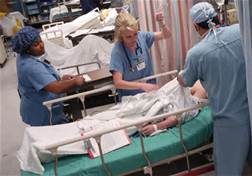When kids are out of school for the summer, it doesn’t take long for them to become bored and sometimes that leads to sibling squabbles and mischief. Even though they don’t realize it, they are usually missing routine and predictability in their daily schedule. One solution is to make fun plans to keep them busy!

Each week this summer we will share a different Camp Au Pair theme. These weekly themes are designed to give you ideas to keep your host kids occupied and engaged all summer long. They will also be learning. (But shhhh, don’t tell them that part.) Check back each Friday, for the next week’s theme. This gives you a chance to make plans and gather materials for the next week. For each theme there will be crafts, games, snacks and activities. You can just use these ideas or add your own and customize the themes to fit the ages and interests of your host children.
Here are the themes you can look forward to:
- Nature Exploration
- Art Experiences
- Under the Sea
- Science (STEM)
- Bugs & Butterflies
- Cars and Trucks
- Backyard Safari
- Dinosaurs
- Explore the World
- Outer Space
- Pirate Adventures
- Princesses & Knights
Check out Summer Fun & Summer Holidays pin boards for even more ideas.
If you get some great pictures doing these activities with your host kids, please send those to your community counselor. We love to share your accomplishments and inspire other au pairs!
Let’s make this an amazing summer!











